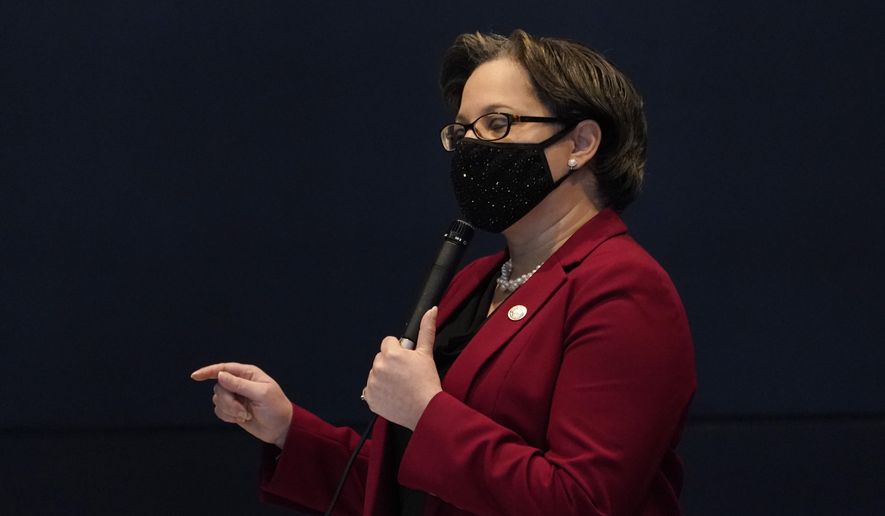The first Democratic candidates’ debate for Virginia governor featured four contenders making a non-issue of former Gov. Terry McAuliffe, the presumptive front-runner who opted not to participate in the forum.
The so-called People’s Debate, a Zoom forum hosted Tuesday night by dozens of progressive groups, called on Delegate Lee Carter, former Delegate Jennifer Carroll Foy, state Sen. Jennifer McClellan and Lt. Gov. Justin Fairfax to address racial, economic, climate and gender issues.
Across the board, the candidates called for a fresh take in Democratic leadership and expressed support for legalizing marijuana, expunging certain criminal records, eliminating qualified immunity for police officers, banning fossil fuel projects and making the General Assembly a full-time job.
They also vowed to not take any campaign contributions from Dominion Energy, the state’s largest electric utility.
The one issue that produced some disagreement was repealing Virginia’s right to work law, which all but Ms. McClellan supported. She said backs eliminating barriers to collective bargaining and unionization but would not support any law that could force workers to join unions.
The candidates mostly ignored Mr. McAuliffe’s absence but did mention him by name a few times — most notably when Ms. Foy fired a shot at the former governor in her opening remarks.
“Virginians want a governor who has walked in their shoes, and who has stood shoulder to shoulder with them and not special interests,” she said. “We need a leader who will move Virginia forward and not back. And frankly, we need a leader who will show up, unlike Terry McAuliffe, who chose not to be here tonight.”
A major Democratic fundraiser and confidant of former President Bill Clinton and Hillary Clinton, Mr. McAuliffe served as governor from 2014 to 2018. Virginia does not allow governors to serve consecutive terms.
The McAuliffe campaign did not specify why he did not participate in the debate, but it has committed to his participation in the four primary debates sanctioned by the Democratic Party of Virginia and at least 10 additional forums.
“Since launching my campaign, I have been speaking directly with Virginians about my big, bold plans to rebuild our economy, create a more equitable Virginia, and move our Commonwealth forward,” Mr. McAuliffe said in a statement. “As governor, I will take bold action now to bolster our economy by accelerating the minimum wage increase to $15 by 2024, ensuring all Virginians have access to quality affordable healthcare, and raising teacher pay above the national average for the first time in Virginia history.”
The first official debate will be held April 6 and hosted by WTVR. The other debates will be conducted on May 6, May 20 and June 1, a week before polls for the primary open.
A survey by Christopher Newport University’s Wason Center released in mid-February found that Mr. McAuliffe had a notable lead over his competition, with 26% of Democratic voters saying they’d support him. Mr. Fairfax was in second place, with 12%.
However, nearly half of voters in the poll said they were undecided and the field was relatively unknown to them.
“New Democratic faces and priorities have emerged since Terry McAuliffe was governor,” Quentin Kidd, academic director of the Wason Center, said in a statement explaining the poll. “He opens with a head start, but he’s a long way from closing the deal.”
David Ramadan, an adjunct professor at George Mason University’s Schar School of Policy and Government and a former member of the Virginia House of Delegates, and Miles Coleman, an associate editor for Sabato’s Crystal Ball, said that Mr. McAuliffe missing this first debate wouldn’t have too big of an impact on his standing. Both said it was a politically savvy move to avoid putting a target on his own back too early in the race.
Mr. Ramadan stressed that moving forward, voters should pay attention to which candidates are releasing thought-out, detailed policies ahead of the debates.
“It’s easy to be a candidate. It’s hard to be a candidate with real plans who can actually communicate a message of governance,” he said.
• Gabriella Muñoz can be reached at gmunoz@washingtontimes.com.




Please read our comment policy before commenting.